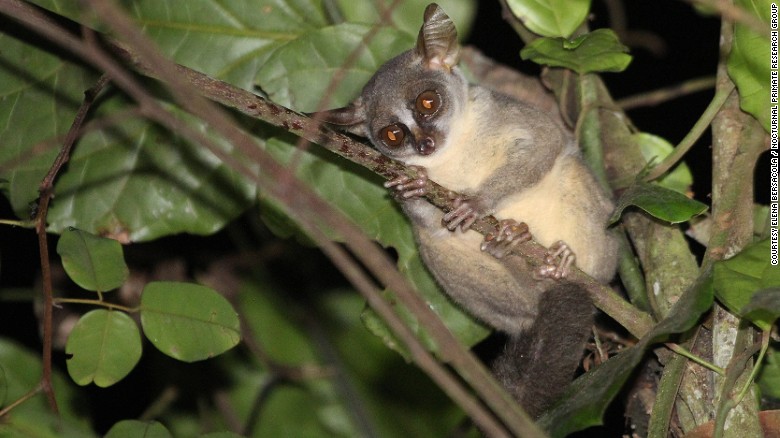This primate species was just discovered in the Angolan forest. Thanks to human activity, it might soon go extinct.

A free daily email with the biggest news stories of the day – and the best features from TheWeek.com
You are now subscribed
Your newsletter sign-up was successful
Scientists only recently discovered a new species of primate in the Angolan forest — but it may be gone before people even get to know it. Thanks to human activity, scientists predict the dwarf galago could disappear in the next few years.
The dwarf galago is roughly the size of a squirrel, though it's big compared to other bushbabies, a family of small primates that resides in sub-Saharan Africa. The dwarf galago's unusual call, which CNN described as "a loud, chirping crescendo of longer notes, followed by a fading twitter, used to attract mates and scare rivals away," is what led scientists to discover the species.
"This new galago species is a very exciting discovery," said Russell Mittermeier of Conservation International. "It is only the fifth new primate from the African mainland to be described since 2000, and only the second species of galago. What is more, it is from Angola, where there has been very little primate research to date."
The Week
Escape your echo chamber. Get the facts behind the news, plus analysis from multiple perspectives.

Sign up for The Week's Free Newsletters
From our morning news briefing to a weekly Good News Newsletter, get the best of The Week delivered directly to your inbox.
From our morning news briefing to a weekly Good News Newsletter, get the best of The Week delivered directly to your inbox.
But scientists aren't optimistic they'll get a chance to expand their research on the new primate. Charcoal production, agriculture, bushmeat trade, and logging have put the dwarf galago's habitat in peril, and the team that discovered the dwarf galago has already recommended that it be added to the list of vulnerable species. "It is worrying that a species we've only just discovered could well disappear within the next few years," said Magdalena Svensson, a primate researcher on the Angola trip. "It might have gone completely unnoticed."
A free daily email with the biggest news stories of the day – and the best features from TheWeek.com
-
 Tourangelle-style pork with prunes recipe
Tourangelle-style pork with prunes recipeThe Week Recommends This traditional, rustic dish is a French classic
-
 The Epstein files: glimpses of a deeply disturbing world
The Epstein files: glimpses of a deeply disturbing worldIn the Spotlight Trove of released documents paint a picture of depravity and privilege in which men hold the cards, and women are powerless or peripheral
-
 Jeff Bezos: cutting the legs off The Washington Post
Jeff Bezos: cutting the legs off The Washington PostIn the Spotlight A stalwart of American journalism is a shadow of itself after swingeing cuts by its billionaire owner
-
 Nobody seems surprised Wagner's Prigozhin died under suspicious circumstances
Nobody seems surprised Wagner's Prigozhin died under suspicious circumstancesSpeed Read
-
 Western mountain climbers allegedly left Pakistani porter to die on K2
Western mountain climbers allegedly left Pakistani porter to die on K2Speed Read
-
 'Circular saw blades' divide controversial Rio Grande buoys installed by Texas governor
'Circular saw blades' divide controversial Rio Grande buoys installed by Texas governorSpeed Read
-
 Los Angeles city workers stage 1-day walkout over labor conditions
Los Angeles city workers stage 1-day walkout over labor conditionsSpeed Read
-
 Mega Millions jackpot climbs to an estimated $1.55 billion
Mega Millions jackpot climbs to an estimated $1.55 billionSpeed Read
-
 Bangladesh dealing with worst dengue fever outbreak on record
Bangladesh dealing with worst dengue fever outbreak on recordSpeed Read
-
 Glacial outburst flooding in Juneau destroys homes
Glacial outburst flooding in Juneau destroys homesSpeed Read
-
 Scotland seeking 'monster hunters' to search for fabled Loch Ness creature
Scotland seeking 'monster hunters' to search for fabled Loch Ness creatureSpeed Read